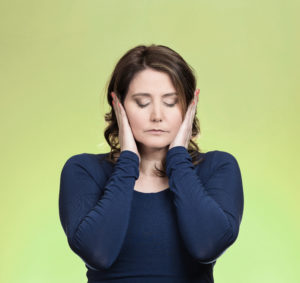Living in Denial

One of the big shifts I made after wandering away from the evangelical church, was to stop lying to myself.
After a lifetime of indoctrination, I had a very powerful ability to deny reality and spin any situation to make sure it was framed as overcoming.
Our addiction to happy endings
In some flavors of Christianity, denial is a lifestyle that is baked into its core belief systems, where “faith is being sure of what we hope for and certain of what we do not see (Hebrews 11:1, NIV).”
Being sure and certain are prized in these communities, and it can be tempting, and is often encouraged, to ignore what you may actually be experiencing in favor of only seeing a preferred future event of healing, joy, rescue, peace, financial gain, etc.
This isn’t just a Christian problem. In the book, Spirit and Trauma, Shelly Rambo suggests that in America we not only love our happy endings, we often demand them. She warns that our habit of jumping to redemption becomes a kind of fantasy that “turns us away from, rather than towards, the complex realities of human existence.”¹
Within Christian bubbles, these powerful fantasies are full of happy, healthy, and moral people filled with peace, love and light. And, enough of these things do show up to keep people in the delusion.
The pull to see this vision of reality is so strong that we learn to deny anything that is contrary to this picture. And, if you don’t see it now, you can be sure of seeing it in the future.
The cycle of denial
Mustering up certainty can become a mind game that plays out like this:
〉 My whole belief system tells me that God’s community/kingdom is about love, light, happiness, wholeness, and great relationships.
〉If I find myself in crisis, I pray, fully confident that God will rescue me since I am part of the tribe. I am so sure that I change my language to talk like the rescue has already happened and I enter into denial.
〉 I repent of my disbelief and amplify my prayer.
〉 I begin to doubt but decide I must double down on my denial so I amplify my prayer to a level of desperation and contort my brain to tell myself I am okay
〉 Cognitive dissonance sets in as I realize either something is wrong with God, scripture, or me. I pick me and move to shame myself. Something must be wrong with me. I am not worth saving. I am not as good as other people God rescued.
〉 At some point denial shifts from insisting ‘I am okay’…to God is okay. God is in control and LOVES me, no matter the evidence to the contrary. It’s all okay
When God doesn’t show up
I had a dream last night about a dear old friend who is no longer in this world. When I found myself waking, I lay in bed as long as I could to cling to the feeling of closeness we shared. The sweetness, the comfort.
My friend and I were close at a time when we both were trapped in personal circumstances where we were begging God for deliverance. We both experienced the cycle of denial I noted above, causing us to settle into shame and defending God for way too long.
Every week we got up on the worship team and sang songs about complete healing, perfect endings and God being all we needed.
But…it wasn’t true.
Hearts remained broken, addictions ravaged bodies and people in the church experienced fear and loneliness. Our pain was so real, but we could only speak of it in whispers, lest others worry about our trust in God and shake the facade.
All we could do was cry, hoping a kind hand would reach down from heaven to remove my misery. But…God didn’t save me from my anguish, nor rescue my dear friend from a tormented existence.
The Harmful Side Effects of Denying Reality
Many Christians can’t openly question and blame God or the Church, so they turn on themselves. Following are a few of the side effects to denying reality.
Denial makes us passive
Focusing on future deliverance can prevent us from being responsible for our own lives. There is no need to face hard things if someone else will do it for us.
I was raised and deeply indoctrinated with the idea that someone was supposed to take care of me. My God, my father, my husband, the church…all had the role of provider and protector, and mine was one of service, compliance, and working on my sin nature. This internalized helplessness was crippling and gave me too much permission not to grow into my own agency and personhood.
We all want to be loved and protected, which is a beautiful feature of mutually fulfilling relationships. But it goes sideways when our insistence that a higher power (or another human) must constantly deliver us from discomfort keeps us weak and childlike, instead of growing into fully functioning adults who can bring about change in our own lives.
Maybe when God doesn’t show up, it’s an opportunity for us to show up for ourselves.
Denial robs us of our life
Being in denial can remove us from our daily lived experience, causing us to miss what is happening in the moments of our lives.
This is our one, brief life, so we should be figuring out how to more fully live it, embrace it, savor it, feel it, embody it, and honor it instead of running away from it.
Hope is a beautiful thing that can sustain us and remind us of possibilities when things are hard, but too many of us have wasted too much time living in a preferred future that robs us of our life today.
Denial hardens us to others
‘God is in control’ is a powerful mantra for controlling the marginalized and maintaining harmful power structures.
For people like me who have walked in a great deal of privilege, staying in a bubble of fantasy prepares us to deny others’ experiences as valid. When we can default to ‘God is in control’, we can more easily overlook abuse, oppression, and racial and economic injustice.
If God’s got this, why should we put forth the effort to change anything?
Also, when we can blame others for their lack of faith, it lets us (and God) off the hook and allows us to stay blind to all of the things we see that are wrong with the world and in the church.
It is here that we become trained defenders of the institutions, theologies and bad actors that need to be reexamined.
Sapere Aude
To be honest, I sometimes I miss the feeling of warmth and peace that comes with wrapping myself in the fantasy of communal proclamations that, “we are free, delivered and healed.” That thinking is so much easier than facing the reality of a hurting world.
But, as tempting as it is, I just can’t do it anymore. My commitment to using my reason means no more lies as I work to find the balance of having real and healthy hope with keeping my feet firmly planted in reality.
¹Rambo, Shelly. Spirit and Trauma: A Theology of Remaining. Louisville, KY: Westminster John Knox, 2010. 147.
